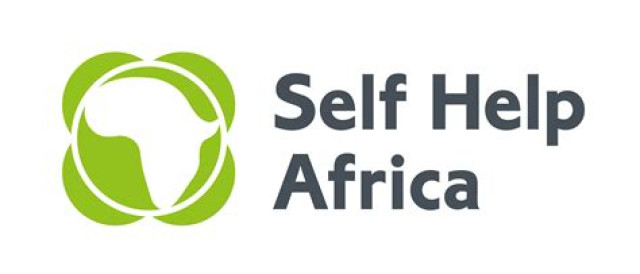The Federal Ministry of Water Resources and Sanitation, in partnership with Self Help Africa, a leading organization in improving access to and use of inclusive, reliable, and resilient WASH services in Nigeria, has (WS4H) Programme during its 25th-anniversary celebration on Thursday in Abuja.
The Honourable Minister of Water Resources and Sanitation, Joseph Terlumun Utsev, represented by the Honourable Minister of State, Hon. Bello Muhammad Goronyo, Esq., hailed the FCDO-supported WS4H Programme as a crucial catalyst in strengthening WASH systems, enhancing community engagement, and empowering local stakeholders for sustainable change.
The Minister, in a press statement issued by the Director of Information and Public Relations, Federal Ministry of Water Resources and Sanitation, Mrs. Funmi Imuetinyan, reiterated the Federal Government's dedication to building upon previous achievements by prioritizing the expansion of equitable and dependable WASH services, particularly in underserved communities.
He informed that the integration of innovative technologies, bolstering cross-sectoral collaborations, and promoting accountability efforts will ensure universal access to safe, reliable, and sustainable WASH infrastructure nationwide.
He acknowledged the significant strides made in Nigeria's WASH sector over the past decade, crediting the collaborative endeavors of various organizations, community leaders, international partners, and visionary officials in reaching Open Defecation Free (ODF) targets and improving sanitation standards nationwide.
According to him, with continued International support and the resolve of the Nigerian people, the Ministry is poised to embark on the next phase of the WASH success story, leading to a healthier and more prosperous future for all citizens.
Dave McConalogue, FCDO Head of Health, highlighted the profound impacts of climate change on ecosystems and societies, particularly in relation to water and fossil fuels.
He emphasized the importance of reducing carbon emissions and building climate resilience through innovative and sustainable practices.
McConalogue cited successful examples of climate resilience initiatives, including reports on business systems and conservation techniques, as well as the promotion of climate-smart agricultural practices like agroforestry.
He underscored the significance of collaboration and innovation in addressing climate challenges, praising the FCDO-assisted agroforestry initiative as a step towards creating sustainable systems.
He expressed gratitude for the FCDO's Sustainable Health Programme and emphasized the importance of empowering communities and investing in resilient infrastructure to ensure a better future for all.
Feargal O'Connell, CEO of Self Help Africa, emphasized the significance of the Nigeria Strategy 2023-2027 in enhancing environmental quality.
The launch of the WASH Systems program underscores a focus on sustainable landscapes, resilient food systems, and healthy communities. O'Connell highlighted the broader impact, including economic growth, gender equality, and improved health outcomes.
He stressed that South Africa's involvement brings integrated approaches and innovative programs to address climate change and environmental stewardship.
While expressing gratitude to partners, supporters, and government collaborators, he was confident that the program would record more success over the next five years.
Self Help Africa's Country Director, Dr. Joy Aderele, emphasized the organization's commitment to sustainable livelihoods and healthy lives during the ceremony.
She revealed that their mission targets hunger, poverty, inequality, and climate change impacts through community-led, market-based strategies.
She also stated that the newly launched five-year program focuses on promoting sustainable food systems via climate-smart agriculture conservation.
Chairman of SHA Nigeria Board and Immediate Past Honourable Minister of Water Resources, Engr. Suleiman Adamu underscored the pressing need to confront the profound impact of climate change on water and food security.
He stressed the crucial role of climate resilience in adapting water and agricultural systems to withstand climate change challenges, advocating for innovative and sustainable practices to safeguard natural resources for future generations.
He highlighted successful initiatives integrating climate resilience into WASH programs, emphasizing collaboration, innovation, and shared responsibility.
He commended the FCDO-supported program for its ambitious goals and substantial funding aimed at establishing robust and sustainable WASH systems.
He celebrated Self Help Africa's 25-year journey as a beacon of hope in climate-resilient efforts.




















